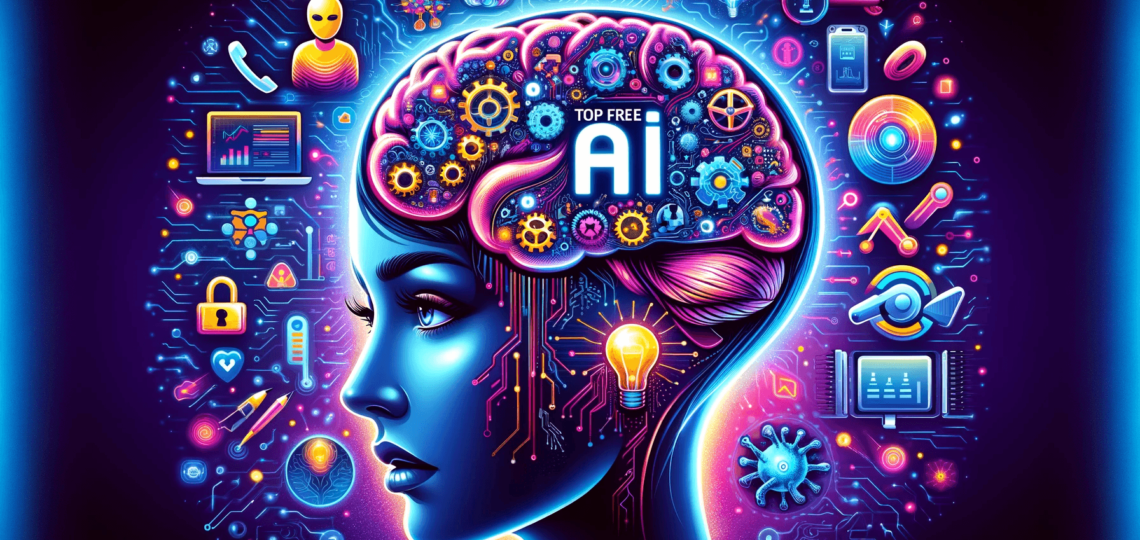
The Rise of AI Tools: Transforming Industries and Everyday Life
Artificial Intelligence (AI) has rapidly transitioned from a futuristic concept to an integral part of our daily lives. With the advent of AI tools, businesses and individuals are experiencing profound changes in how tasks are performed, decisions are made, and creativity is harnessed. This article explores the various AI tools available today, their applications, benefits, and potential challenges.
Understanding AI Tools
AI tools are software applications or platforms that leverage artificial intelligence technologies to perform specific tasks. These tools can range from simple applications that automate repetitive tasks to complex systems capable of learning, reasoning, and even generating Ai Tools creative content. Key types of AI tools include:
- Natural Language Processing (NLP) Tools: These tools enable machines to understand, interpret, and respond to human language. Popular examples include chatbots, language translation services, and content generation tools.
- Machine Learning Platforms: These allow users to create predictive models using data. They are widely used in finance for fraud detection, in healthcare for predicting patient outcomes, and in marketing for customer segmentation.
- Computer Vision Tools: These tools enable computers to interpret and understand visual information from the world. Applications include facial recognition, autonomous vehicles, and quality inspection in manufacturing.
- Automation Tools: RPA (Robotic Process Automation) tools automate repetitive tasks, improving efficiency in administrative functions, data entry, and supply chain management.
- Creative AI Tools: These applications assist in generating art, music, and writing, providing creators with innovative ways to express their ideas.
Applications of AI Tools
The versatility of AI tools has led to their adoption across various industries:
- Healthcare: AI tools are revolutionizing diagnostics, patient care, and research. For instance, AI-driven imaging analysis can help detect diseases earlier than traditional methods.
- Finance: AI algorithms analyze vast amounts of data to identify investment opportunities, assess risks, and automate trading strategies.
- Marketing: Businesses use AI tools for personalized marketing campaigns, customer insights, and social media management, leading to enhanced customer engagement.
- Education: AI-driven platforms offer personalized learning experiences, helping educators tailor their teaching methods to meet individual student needs.
- Human Resources: AI tools streamline recruitment processes by automating resume screening and conducting initial interviews, allowing HR teams to focus on strategic tasks.
Benefits of AI Tools
- Efficiency and Productivity: AI tools can process data and perform tasks faster than humans, allowing businesses to operate more efficiently.
- Cost Savings: Automating routine tasks reduces labor costs and minimizes human error, resulting in significant savings.
- Enhanced Decision-Making: AI provides data-driven insights that help organizations make informed decisions, reducing uncertainty.
- Innovation: Creative AI tools foster innovation by providing new avenues for artistic expression and problem-solving.
- Personalization: AI tools can analyze user behavior and preferences, enabling businesses to offer tailored experiences and solutions.
Challenges and Considerations
Despite their numerous advantages, AI tools come with challenges that must be addressed:
- Data Privacy: The use of AI often requires vast amounts of data, raising concerns about user privacy and data security.
- Bias and Fairness: AI systems can inadvertently perpetuate biases present in training data, leading to unfair outcomes. Addressing bias is critical to building trustworthy AI.
- Job Displacement: While AI tools can enhance productivity, they may also lead to job displacement in certain sectors, necessitating a focus on retraining and reskilling the workforce.
- Ethical Concerns: The deployment of AI tools raises ethical questions regarding decision-making, accountability, and transparency.
The Future of AI Tools
As AI technology continues to evolve, we can expect even more advanced tools that integrate seamlessly into our lives. The future of AI tools will likely involve:
- Greater Collaboration: AI tools will increasingly work alongside humans, enhancing capabilities rather than replacing them.
- Interdisciplinary Applications: AI will permeate various fields, leading to novel applications and innovations that we cannot yet foresee.
- Focus on Ethical AI: The industry will continue to prioritize ethical considerations, ensuring that AI tools are used responsibly and equitably.
Conclusion
AI tools are not just transforming industries; they are reshaping the very fabric of our everyday lives. As we navigate the opportunities and challenges presented by these technologies, it is essential to foster an environment that encourages responsible innovation and equitable access. Embracing AI tools can lead to remarkable advancements, driving efficiency, creativity, and progress in a rapidly changing world.